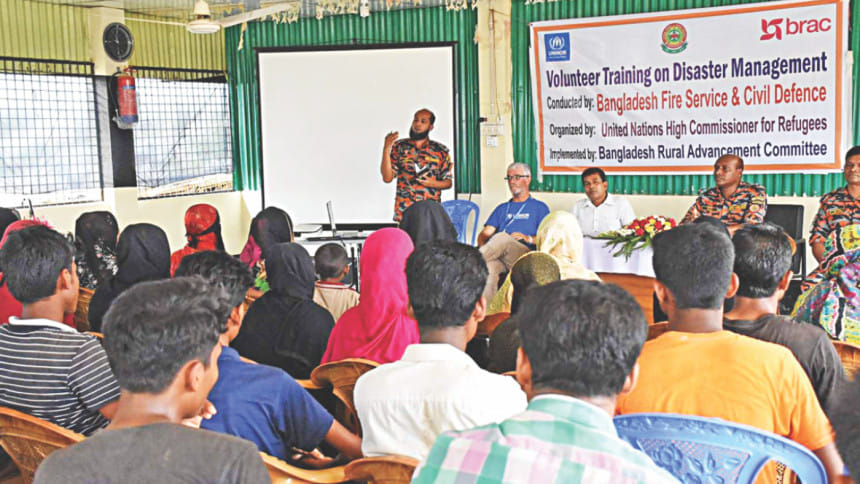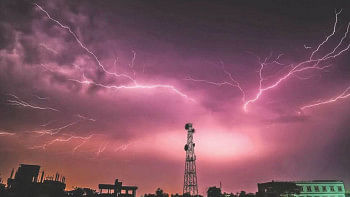Getting ready for monsoon

UNHCR, the UN Refugee Agency, has trained thousands of Rohingya volunteers on emergency preparedness and skills ahead of what is expected to be one of the most challenging periods since the refugee influx last year -- the approaching monsoon season.
The UNHCR and its partners, working closely with the government of Bangladesh, stepped up emergency training and awareness sessions at the refugee settlements several months ago.
It is estimated that up to 200,000 refugees could be at risk of flooding and or landslides, said an UNHCR press release yesterday.
“As heavy rains and strong monsoon winds approach, it is critical that we stand firmly with the Rohingya refugees we serve,” said Kevin J. Allen, UNHCR head of operations in Cox's Bazar. “It is equally important that we empower and train refugees to play their role in the response, working hand-in-hand with the national authorities, sister UN agencies and civil society.”
Some 262 Community Outreach Members (COMs) received a wide range of training on basic awareness and landslide risk mitigation, basic first aid training, and preparing for weather hazards like cyclones, heavy rains, flash floods and landslides.
They are now helping families understand how they can stay safer, where they can go to get help and what they should do in the event of an emergency. Having also received Psychological First Aid training, the COMs can also help to allay people's worries, as well identify those in particular distress needing referrals to other health service providers and expert help.
Since April, the COMs have reached more than 20,000 people with messages on emergency preparedness at household level.
More than 900 UNHCR trained Community Health Workers (CHWs), meanwhile, have received certified First Aid Training, with another 1,500 currently being trained, including among them, 400 CHWs from UNHCR's implementing and operational health partners.
CHW volunteers have also been trained under the auspices of the government of Bangladesh's Cyclone Preparedness Programme (CPP). They have also attended workshops on preparing for possible outbreak of acute diarrhoea, risk communication -- providing information to people so they can make informed decisions to protect themselves, basic counseling, psychological first aid and identification and referral of mental health cases.
In addition, other government entities, such as the Bangladesh Army has trained several hundred refugee volunteers to assist them in any first response.
Mitigation measures include improved drainage, slope stabilisation, improved pathways, including working with the army of Bangladesh to build and pave the main arterial road through the Kutupalong-Balukhali mega refugee site, and establishing early warning systems.
UNHCR, with its partners, has built over 60 kilometres of drainage canals, more than 34kms of footpaths, 34kms of stairs, and 42kms of retaining walls in the settlements.
UNHCR and partners have also distributed more than 82,000 upgraded shelter kits, which provide families with sturdier and more waterproof shelters. They are currently distributing 80,000 pre-monsoon “tie-down” kits, comprised of steel stakes and rope to help families anchor their shelters firmly when strong winds start to approach.

 For all latest news, follow The Daily Star's Google News channel.
For all latest news, follow The Daily Star's Google News channel. 



Comments